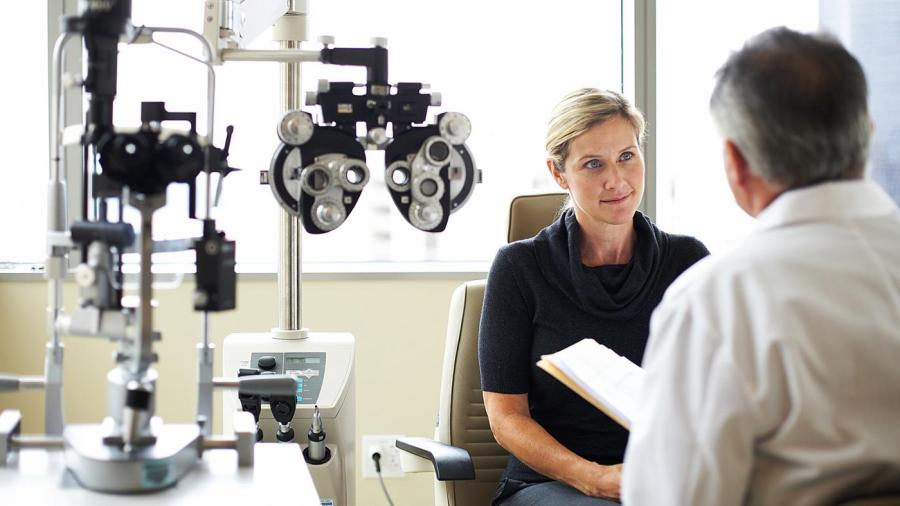What Helps You Heal Faster From Cataract Surgery?

To hasten recovery after cataract surgery, avoid bending over in the hours after surgery, avoid swimming pools and hot tubs during the first week after surgery, and refrain from strenuous activity for several weeks after surgery, advises All About Vision. Following these guidelines minimizes trauma and infection risk, speeding healing.
Typical symptoms after cataract surgery include a sense of grittiness in the eye, itching, discharge and mild to moderate pain, according to the National Eye Institute. The eye may also be sensitive to light and touch. Most of these symptoms subside after two or three days.
Complications can occur after surgery, notes the National Eye Institute. They include infection, bleeding, vision loss or double vision, inflammation, and problems with either high or low eye pressure. If these problems are identified early, they can be treated successfully. Occasionally, the tissue that surrounds the new lens clouds and causes blurred vision. This is called an after-cataract and it is treated with an outpatient surgical procedure.
Cataract surgery is indicated when vision becomes impaired due to the clouding of the lens over time, according to WebMD. During the outpatient surgery, the clouded lens is replaced with a synthetic lens made from plastic, acrylic or silicone, restoring visual acuity. It is one of the most frequently performed surgeries in the United States, with an excellent prognosis.





